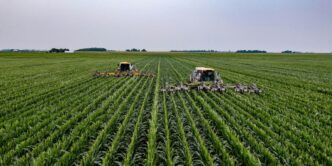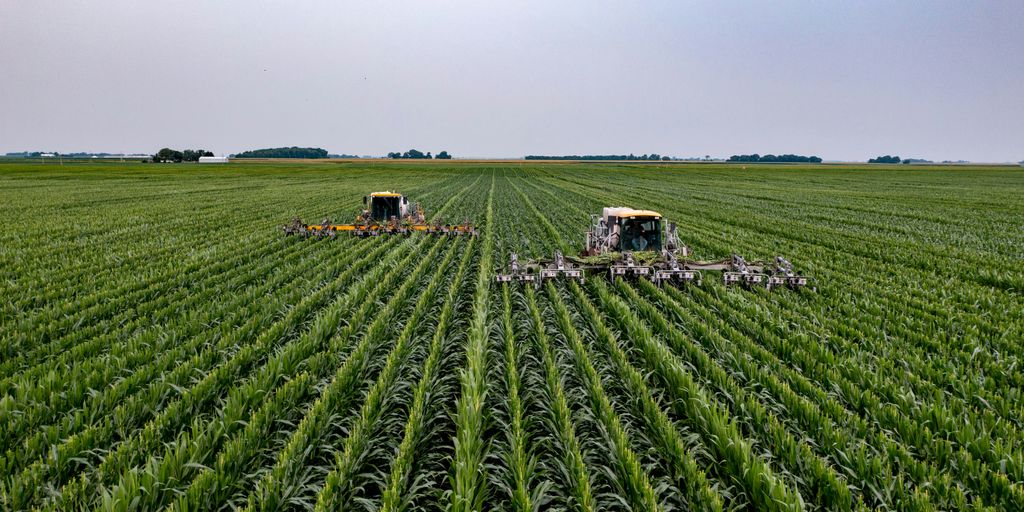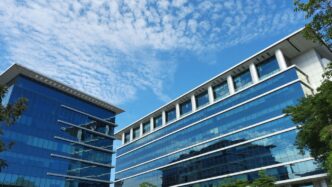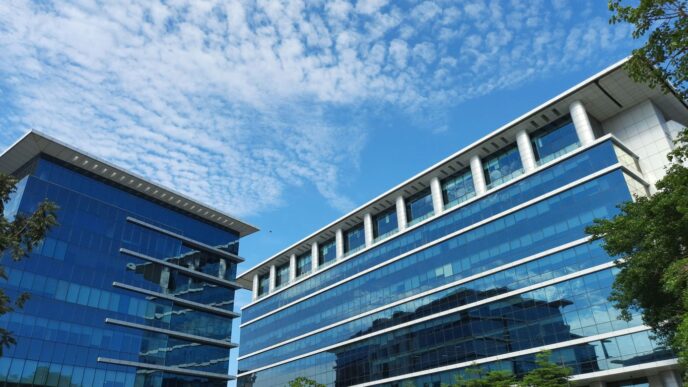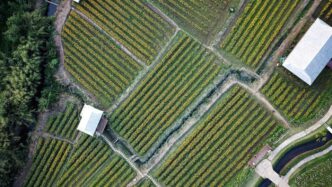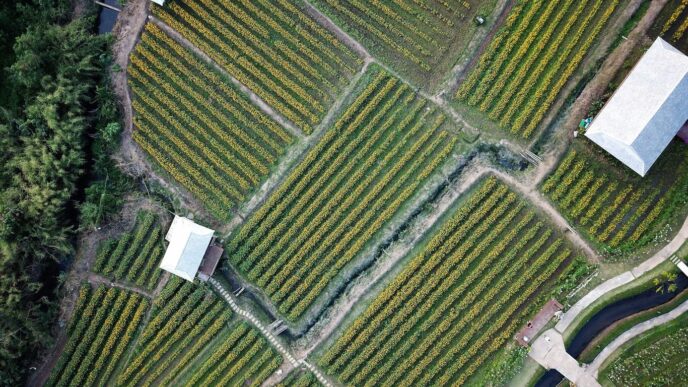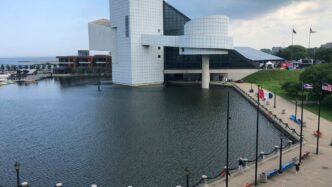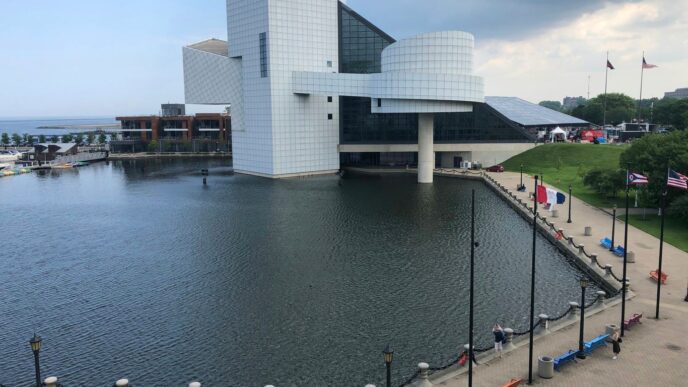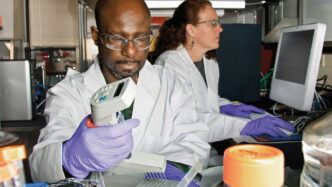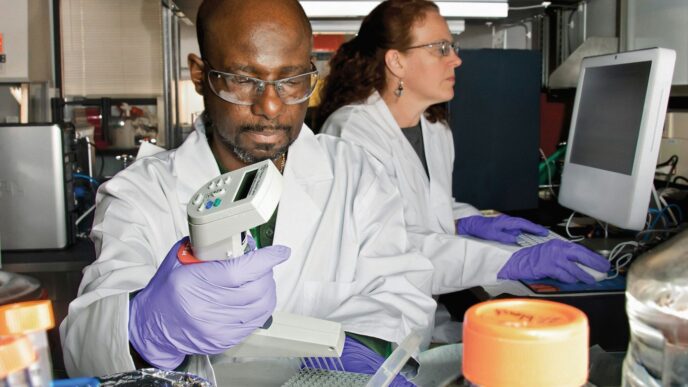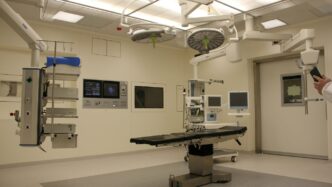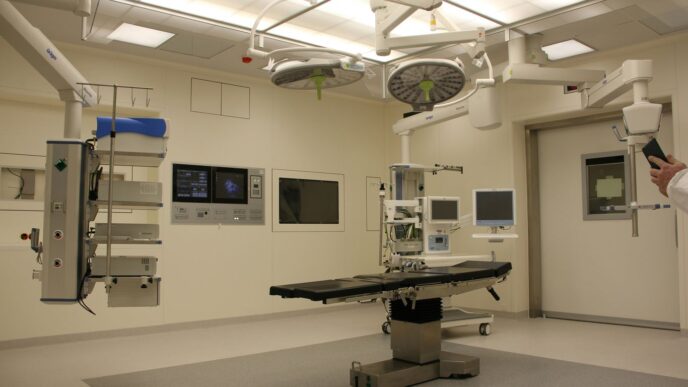Bayer Crop Science is really changing how farmers do things. They’re not just selling seeds and chemicals anymore. It’s like they’re building a whole new toolkit for farming, mixing old ideas with super new tech. From figuring out how to protect crops better to using computers to make fields smarter, Bayer Crop Science seems to be everywhere. They’re even looking at stuff from nature, like bugs and plants, to find solutions. It’s a big deal for how we’ll grow food in the future, and it’s pretty interesting to see how it all comes together.
Key Takeaways
- Bayer Crop Science is pushing new ways to find and make crop protection products, like their CropKey method, to deal with pests, diseases, and weeds.
- They are also exploring biological solutions, using natural things like microbes and plant extracts, and even synthetic biology, to help crops grow better.
- Digital tools, especially FieldView, are a big part of how Bayer Crop Science helps farmers make smarter choices using farm data.
- The company is developing tougher, higher-yielding seeds and using plant biotechnology, including work on hybrid wheat, to improve crops.
- Bayer Crop Science is focused on regenerative agriculture, supporting practices like no-till farming and using cover crops such as CoverCress to help the environment and farm success.
Advancing Crop Protection Through Innovation
Bayer Crop Science is really focused on coming up with new ways to help farmers deal with pests, diseases, and weeds. It’s not just about making the same old stuff; they’re trying to find the next generation of solutions that are also better for the environment.
The CropKey Approach to Product Discovery
This is a pretty big deal. CropKey is basically a whole new way Bayer is looking at finding new crop protection products. Instead of just trying things out, they’re designing molecules based on what they want them to do, including specific safety and sustainability goals. Think of it like building something with a detailed blueprint from the start, rather than just winging it. This means the products are designed to work in very specific ways, which should make them more effective and less likely to cause unintended problems. It’s all about being more precise and responsible from the very beginning of the development process.
Sustainable Small Molecules
When we talk about crop protection, a lot of the focus is on these small molecules. Bayer is working on making these more sustainable. This means developing products that are highly effective against the target pests or diseases but break down more easily in the environment, leaving less residue behind. They’re also looking at how these molecules interact with the plant and the soil, aiming for solutions that fit into a more natural farming system. It’s a balancing act, for sure, but important for long-term farming health.
Addressing Pest, Disease, and Weed Challenges
Farmers are constantly battling these three things. Pests can eat crops, diseases can wipe out fields, and weeds compete for resources, all of which can seriously cut into a farmer’s harvest. Bayer’s innovation in crop protection is aimed at giving farmers more options to tackle these issues. For example, they’re developing products that target specific types of insects or fungi, reducing the need for broad-spectrum chemicals. They’re also looking at new ways to manage weeds that might be resistant to older herbicides. The goal is to keep crop yields up and make sure farmers can produce enough food for everyone, while also being mindful of the impact on the land.
Pioneering Biological Solutions for Agriculture
It feels like just yesterday that biological options in farming were mostly about microbes. But things are really changing fast, and the biologicals industry is growing in all sorts of new directions. We’re seeing more and more nature-derived biocontrol and biostimulant solutions, like products using pheromones, plant extracts, and even synthetic biology. These biologicals are opening up new ways to farm, like using synthetic biology to get nitrogen-fixing microbes into crops like corn, wheat, and rice. Imagine if these major food crops could get their nitrogen straight from the air – that’s a big deal for food security.
Bayer is already playing a big part in shaping this growing biologicals market. We’re working with partners to speed up the development and sale of these new products. By combining our trusted brand, knowledge of regulations, and ability to sell products globally, we can help partners reach millions of farmers, not just thousands. This is especially important as regenerative agriculture becomes more important. Biologicals are going to be a key part of fertility programs in regenerative farming.
Think about synthetic nitrogen fertilizer. It’s helped boost global food production significantly, feeding billions. But making that fertilizer is a big source of greenhouse gas emissions – about 3% of the global total. Nitrogen-fixing technologies could really help here. They offer a way to cut down on the need for that carbon-intensive fertilizer while still producing enough food. It’s a win-win for farming and the planet.
Expanding the Realm of Biologicals
The world of biologicals is much bigger than just microbials now. It includes a range of products derived from nature. These are designed to help crops grow better and protect them from problems.
- Biocontrol Agents: These use natural processes to manage pests and diseases, like beneficial insects or naturally occurring fungi.
- Biostimulants: These are substances or microbes that, when applied to plants or the soil, stimulate natural processes to help nutrient uptake, nutrient efficiency, tolerance to abiotic stress, and crop quality.
- Botanicals and Plant Extracts: Using compounds from plants to offer protection or growth benefits.
Harnessing Nature-Derived Biocontrol and Biostimulants
We’re seeing a big shift towards using what nature provides to help crops. These biological products often have a better environmental footprint and less impact on natural surroundings compared to some traditional chemicals. They can act like nutritional supplements for the soil, feeding it and making plants healthier and more productive. Bayer is putting a lot of effort into this area, using our global experience in field testing and getting products approved to bring these innovations to farmers quickly. We’re working to make sure these solutions are practical and effective for everyday farming. You can find more about how Bayer is involved in agriculture biologicals.
The Role of Synthetic Biology in Crop Enhancement
Synthetic biology is a really exciting frontier. It allows scientists to design and build new biological parts, devices, and systems, or to re-design existing, natural biological systems for useful purposes. In agriculture, this could mean developing microbes that can help crops fix nitrogen from the air, reducing the need for synthetic fertilizers. It could also lead to plants that are more resistant to drought or disease. This technology has the potential to create crops that are not only higher yielding but also more resilient, helping farmers use fewer inputs like fuel and fertilizer. It’s about making agriculture part of the solution for a healthier planet.
Transforming Farming with Digital Technologies

Leveraging Data for Enhanced Decision-Making
Farming today is way more complex than it used to be. Farmers are dealing with changing weather patterns, new pests, and the constant need to produce more food for a growing population. That’s where digital tools come in. Think of it like giving farmers a super-powered assistant that helps them make better choices for every single field. By collecting and organizing information from various sources – like weather forecasts, soil samples, and even satellite images – these tools paint a clearer picture of what’s happening on the farm. This data helps farmers decide exactly when to plant, how much fertilizer to use, and when to irrigate, all tailored to the specific needs of their land. It’s about moving from guesswork to informed decisions, acre by acre.
The Impact of FieldView on Farm Operations
Bayer’s FieldView platform is a prime example of how digital tech is changing day-to-day farming. It’s not just about collecting data; it’s about making that data useful. Farmers can use FieldView to map out their fields, track planting progress, and monitor crop health throughout the season. For instance, a farmer might see that one part of a field is getting less rain than another. FieldView can help them adjust their irrigation schedule for that specific area, saving water and making sure the crops get what they need. This kind of precision means less waste, better yields, and ultimately, a more profitable operation for the farmer. It’s about working smarter, not just harder.
Digital Tools for Agronomic Insights
Beyond just day-to-day management, digital tools are also providing deeper insights into how to grow crops better over the long term. These systems can analyze years of data, looking for patterns that might not be obvious to the human eye. For example, by comparing yield maps from different seasons with weather data and the types of seeds planted, farmers can learn which varieties perform best in their specific climate conditions. This helps them plan for future seasons, selecting the most suitable crops and management practices. It’s a continuous learning process, where technology helps farmers refine their approach and build more resilient and productive farming systems for the future.
Innovations in Seeds and Plant Biotechnology

When we talk about the future of farming, seeds and how we improve plants are a huge part of the story. Bayer CropScience is really pushing the envelope here, using all sorts of advanced tools to make crops better. They’re not just trying to get more food out of the ground, but also making sure that food is healthier and that the plants themselves can handle a tougher environment.
Developing Resilient and High-Yielding Seeds
It’s pretty wild how much plant breeding has changed. Bayer uses what they call precision breeding, which sounds fancy, but it basically means they can speed up how they develop new seeds and make them way more suited to what farmers actually need in their specific fields. They’re looking at tons of data, including what customers want and deep genetic information about their plants. The goal is to get the best traits into new seeds faster. They even have a target to cut down one breeding cycle from six years to just four months. Imagine that – more than doubling how fast they can improve crops by 2030! This is a big deal for helping farmers grow more with less, which is good for everyone.
Breakthroughs in Plant Biotechnology Traits
Bayer has been a major player in plant biotechnology for a long time, launching more biotech traits than anyone else. These traits give crops abilities that really change how they grow. Think about crops like corn, soybeans, and cotton that can handle pests better or need fewer resources. They’ve developed over 65 different traits, and these are used on millions of acres every year. They use a mix of technologies, like gene editing and understanding RNA, to keep improving their seed options. They’re even creating combinations of multiple traits in a single seed, which is pretty complex stuff.
The Potential of Hybrid Wheat
Hybrid wheat is another area where innovation is making a big difference. Using modern genetic tools, they’re developing wheat that should give farmers better yields and more consistent results, even when the weather is unpredictable. This kind of resilience means farmers might use less fuel, fertilizer, and crop protection products. It’s a way to help secure food production globally and also make farming a bit kinder to the environment. It’s all about helping farmers produce more with less, and making agriculture part of the solution for nature, not the problem. You can see how these advancements are key to future agricultural development.
Driving Regenerative Agriculture Practices
Regenerative agriculture is all about farming in a way that actually improves the land over time, not just keeps it from getting worse. It’s a big shift from how things have been done for a while, focusing on building soil health, increasing biodiversity, and keeping water in the ground. Bayer is looking at how to make this happen with practical tools and approaches.
Enabling No-Till and Conservation Tillage
Reducing how much we disturb the soil is a cornerstone of regenerative farming. Practices like no-till or reduced tillage mean planting seeds directly into the residue of the previous crop. This helps keep the soil structure intact, which is good for water infiltration and reduces erosion. It also means more organic matter stays in the soil, feeding the microbes that plants need. Think of it like not digging up your garden beds every year; you’re letting the soil ecosystem do its thing. This approach can really change how a farm operates, and it’s something Bayer is exploring with different seed and crop protection combinations that work well with these methods. It’s a bit like how BMW’s Vision Vehicle uses innovative materials for a new kind of mobility [1689].
The Benefits of Cover Crops Like CoverCress
Cover crops are planted between cash crops, often to protect and improve the soil. They can prevent erosion, suppress weeds, and add nutrients back into the soil. Some cover crops, like CoverCress, are being developed not just for soil health but also as a potential new oilseed crop. This means farmers could get an extra crop off their land that also benefits the soil. It’s a dual-purpose approach that fits right into the regenerative model. Imagine planting something that protects your soil in the winter and then gives you an additional harvest in the spring. This kind of thinking is key to making farming more sustainable and profitable.
Integrating Solutions for On-Farm Success
Making regenerative agriculture work on a real farm means putting different pieces together. It’s not just about one new product; it’s about how seeds, crop protection, and digital tools all work together. For example, using data from digital platforms can help farmers decide the best time to plant cover crops or when to reduce tillage. Bayer’s FieldView platform, for instance, helps farmers use weather and field data to make smarter choices. The goal is to create systems that are flexible enough for each farmer’s specific needs and land. This integrated approach is what will help farmers adopt these practices and see the benefits for their fields and their bottom line.
Bayer Crop Science’s Commitment to Sustainability
Reducing Environmental Impact in Crop Protection
Bayer Crop Science is really focused on making farming better for the planet. They’re not just about growing more food, but about growing it in a way that doesn’t harm the environment. A big part of this is their work in crop protection. They’ve developed this thing called the "CropKey" approach. It’s a new way to find and create crop protection products. Instead of just making something that works, they design molecules with specific safety and sustainability profiles from the start. This means the products are meant to work precisely where needed and break down safely, going beyond what’s currently required by regulations. It’s about being smarter with chemicals, using less, and making sure what is used has a minimal footprint.
Empowering Farmers with Advanced Tools
It’s not just about the products themselves, but how farmers use them. Bayer is putting a lot of effort into digital tools. Think about their FieldView platform. It helps farmers collect data from their fields – things like soil conditions, weather patterns, and crop health. With this information, farmers can make much better decisions about when and where to apply treatments, or even when to plant. This data-driven approach means less waste, more efficient use of resources like water and fertilizer, and ultimately, healthier crops with less environmental stress. They also offer programs that reward farmers for making smart choices, like using products that are better for the environment.
Contributing to Global Food Security
At the end of the day, all these innovations are aimed at helping farmers feed a growing world population. Crop protection is a huge part of that. It’s estimated that without these tools, we’d lose about 30% of our global crop yields. That’s a massive amount of food, enough to feed billions of people. By developing more effective and sustainable ways to protect crops from pests, diseases, and weeds, Bayer is helping farmers produce more food on the same amount of land. This is really important as we face challenges like climate change and limited natural resources. They’re also looking at things like biological solutions and advanced seed traits that can help crops grow better in tougher conditions, further supporting the goal of feeding everyone.
Looking Ahead: Bayer’s Continued Role in Farming’s Future
So, what does all this mean for the future of farming? Bayer Crop Science is really pushing forward with new ideas, from seeds that can handle tough weather to ways to protect crops using nature itself. They’re also big on using digital tools to help farmers make smarter choices. It’s clear they’re focused on helping farmers grow more food, more efficiently, and in ways that are better for the planet. As agriculture keeps changing, companies like Bayer will likely play a big part in shaping how we grow our food for years to come.

